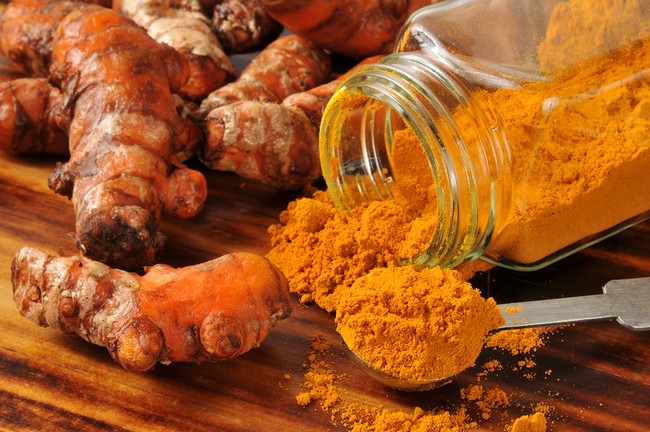- Make It Yourself Lavender Heart-Shaped Bath Bombs!
- 20 Things You Never Knew About “Down There”
- 12 Best Foods For Those Suffering From Arthritis Pain
- 12 Personal Hygiene Mistakes Almost Everyone Makes (Mom Never Told You About #4!)
- 15 Medicinal Plants And Herbs From The Cherokee People
- 12 Mind-Blowing Benefits Of Drinking Coconut Water During Pregnancy
- 12 Outstanding Winter Foods That Won’t Fatten You Up Like A Christmas Turkey
The Truth about Turmeric and Alzheimer’s Disease

Photo credit: bigstock.com
Alzheimer’s disease is a type of dementia, a disorder of the brain that seriously affects a person’s memory to the point that most people cannot carry out even the simplest daily activities. Alzheimer’s is the most common form of dementia for those over the age of 65. Symptoms begin appearing after 60, although there are some cases of early onset of this debilitating disease that are considered to be due to a specific genetic defect.
Although the exact cause of Alzheimer’s is not yet known, what is known is that it involves the parts of the brain that controls our memory, thoughts, and language. There is no cure. This disease progresses slowly and first shows itself as signs of forgetfulness, such as continually losing your keys, or placing things in strange places, such as placing house keys in a shoe for “safe keeping.” As the disease progresses, many patients become paranoid, begin hiding things, seem to believe that their family members or doctors are out to harm them. Later on, patients forget even long time family members and spouses, and no longer remember their own names or birthday. They no longer remember what day it is, what year it is, or even what season it is. Eventually they can no longer do everyday tasks such as brush their teeth, comb their hair, or dress themselves, and sometimes they no longer even recognize food. Most people with Alzheimer’s eventually require comprehensive care around the clock.
Researchers currently believe that there is no one specific cause of Alzheimer’s, but rather that there are several factors that seems to affect each person differently. Age is one common factor in this disease, with the incidence of Alzheimer’s doubling about every 5 years for those over 65. It’s possible that there is a gene that is centrally involved in the development of Alzheimer’s but that gene remains to be discovered.
Continue to Page 2

































Rajen
Jul 11, 2015 at 2:56 pm
how can we increase turmeric. curcumin in our diet…
Gabe
Jul 12, 2015 at 1:46 pm
Curry, which has turmeric as a main ingredient, is a flavorful way of adding turmeric to your diet. Fresh turmeric, root as a whole food, may be the best way to increase your intake of curcumin.
Rajen
Jul 12, 2015 at 3:47 pm
Hi Gabe, Thanks so much for your response. I’m from India and eat primarily vegetarian dishes at home. They all have turmeric, ginger, garlic and other spices in them. The turmeric in like three recipes is maybe a couple of tea spoons for a serving of 9. Surely it’s better than nothing, but does it get even close to having any beneficial effect. What is the MDR-minimum daily requirement to be of medicinal value. Where can i get more info on this. Thanks again…;)))
Gabe
Jul 12, 2015 at 5:43 pm
Namaste’, Rajen
the internet will provide you with any query you have. You can start with asking, ‘benefits of curcumin’.
The best of health.
https://www.google.com/webhp?sourceid=chrome-instant&ion=1&espv=2&ie=UTF-8#q=benefits+of+curcumin
MindfullyLiving
Jul 13, 2015 at 3:05 pm
There is also a Tumeric User Group on facebook for anyone interested and please also check out Doug’s fabulous new website http://www.turmericlife.com.au/